Inflammation in Chronic Disease Inaugural Networking Workshop Meeting Report
February 12-13, 2015
The Fairmont, Winnipeg
Introduction
Background and Overview of Workshop
Inflammation in Chronic Disease: A CIHR Signature Initiative
The Institute of Musculoskeletal Health and Arthritis (IMHA) and the Institute of Infection and Immunity (III), are co-leading "Inflammation in Chronic Disease," a CIHR Signature Initiative initiated at the 2011 Consensus Conference, to establish new interdisciplinary teams that bring together groups of researchers to undertake truly innovative research in the field of chronic inflammation. It is anticipated that the initiative will support the discovery and validation of common biomarkers, therapeutic targets, and inflammatory mechanisms among chronic diseases, as well as develop prevention and treatment approaches. The Initiative’s global objective is to bridge the silos between research groups working in particular chronic disease areas so as to recognize and advance on common pathways and interventions, ultimately contributing to a unified Canadian chronic disease strategy.
The first projects funded under this initiative included the Canadian Microbiome Initiative and the Canadian National Transplant Research Program (CNTRP), which will conclude in 2015 and 2018 respectively. In 2014, funding for nine research teams focusing specifically on different aspects of inflammation in chronic disease was announced. Seeking to foster collaboration and communication, IMHA and III organized a networking workshop among researchers of the initial two initiatives and the recently-funded projects. Besides the researchers, participants included CIHR institute scientific directors of the sponsor institutes, guest expert researchers, funding partners, Industry representatives, patient representatives, and IMHA and III staff members (See Appendix B – Participant List). The meeting took place February 12-13, 2015, in Winnipeg, Manitoba (See Appendix A – Meeting Agenda).
Objectives
The workshop objectives were:
- To facilitate sharing of project plans and innovative ideas for reducing inflammation in chronic disease;
- To provide opportunities and information on knowledge translation and partnership;
- To discuss metrics for what research success will look like in five years.
Agenda and Workshop Format
The workshop agenda divided the day-and-a-half meeting into two sections with the first day focusing on inflammation research in Canada. The second day involved a knowledge translation panel discussion, and presentations from industry and charity organizations on partnership opportunities. Welcoming remarks from the host institute Scientific Directors, partners and patient representatives were followed by a Keynote Address from internationally renowned inflammation researcher and Gairdner Award-winner, Sir Marc Feldmann. Dr. Feldmann shared his experiences of what successes and challenges he faced, with his presentation, Beyond anti-TNF therapy for RA: can we get closer to a cure? He emphasized the need to highlight Canada’s strengths in research that will make it stand out on the world stage. Following Dr. Feldmann’s presentation, Dr. Peter Nickerson, Associate Dean (Research) representing the University of Manitoba, spoke on “Supporting Research Clusters from the University Perspective,” providing a host university point of view of supporting research. Next, the Scientific Directors of the initiative’s collaborating CIHR institutes, Drs. Anthony Phillips, Philip Sherman, and Cara Tannenbaum (Neurosciences, Mental Health and Addiction (INMHA), Nutrition, Metabolism and Diabetes (INMD), and Gender and Health (IGH), respectively), spoke on “The many faces of inflammation” and the importance of inflammation research to their respective Institute mandates. The morning and early afternoon continued with short presentations given by representatives from each research team explaining their respective projects and the hoped-for outcomes. Throughout the day, all participants were afforded opportunities to network and view posters prepared by each team.
Breakout sessions in the afternoon prompted discussion of communication between teams and knowledge exchange, sustainability, and technology and platforms as it related to the Inflammation in Chronic Disease Signature Initiative. To encourage networking and cross-team discussion, participants were assigned to groups randomly. At the end of this session, a rapporteur from each group presented key points to the plenary.
The stage was set for the knowledge translation session on the second day with a presentation from Dr. Lori West, Director of the CNTRP titled, From bench to clinic, to patients, to media, to policy makers and back again – CNTRP’s KT strategy. A Knowledge Translation Panel Discussion followed, during which guest experts addressed specific questions, and invited discussion from participants. Finally, the day concluded with informative presentations given by representatives of a charity partner and industry representatives in a Partnership Opportunities session. Aida Fernandes, Chief Science and Education Officer representing funding partner Crohn’s Colitis Canada, and Industry Partner representatives from Hoffman – La Roche, GlaxoSmithKline, and AbbVie gave presentations on what opportunities they offer researchers for partnership. A question and answer period followed, yielding much discussion. While a performance measurement presentation had been planned, it was not included due to time constraints.
Breakout Sessions and Discussion Summaries
The following key points arose from the small group discussions around their respective theme-based questions. Despite being separate themes, discussion tended to overlap throughout regarding the need for collaboration and sustainability and the importance of communication to achieve those goals.
Theme I: Communication between teams and knowledge exchange
Participants in the Communication and Knowledge Translation group were asked to discuss the following topic:
The discussion began with participants suggesting that researcher teams need assistance with knowledge translation. Team members have varying capacity in this area, and it is important to understand that while some teams are well equipped in KT, others do not have the resources to do it well. It was suggested that CIHR should assist teams in this area by making KT brokers available, who could help identify and bring together the emerging knowledge from research and the relevant stakeholders. Participants further discussed the possibility of providing KT training to trainees to create capacity in the next generation of researchers.
Representatives from partner organizations advised on the importance of effective knowledge translation so partners can see a return on their investment in initiatives and research. If researchers focus on the wrong aspects of their studies or do not translate the results into plain language, partner organizations and their communities may have difficulty understanding the information. Patient representatives agreed with this, reiterating that the use of plain language is key as patients come from different educational backgrounds. Partners in the group suggested that CIHR can assist by providing lay summaries of research progress throughout the initiative. As well, researchers should also be aware that some partner organizations have expertise in the area of communication and knowledge translation and therefore only need content from researchers to generate information for their stakeholders. Participants agreed that over all, communication among the research teams is essential, with face-to-face communication being ideal. While CIHR representatives in the group advised that there will be one or two future meetings for this Signature Initiative, participants expressed a desire to meet in-person more often throughout the five years. Participants discussed the benefits of in-person meetings which included motivation, collaboration and knowledge exchange. They suggested overall, these meetings would help maximize CIHR’s return on its investment.
If meeting face-to-face proves to be difficult, participants discussed other ways for regular inter-team communication. One suggestion was to develop a website for the Initiative that would include a who’s who section as well as share available data and technology. However, not all participants agreed this would be beneficial as often these types of websites become neglected and remain unused. The need expressed, however, was that researchers must communicate with each other before communicating with the public to share resources – especially regarding patient cohorts. The ethics of sharing cohorts was identified as a concern since Research Ethics Boards (REBs) are different across the country. The Canadian Clinical Trials Coordinating Centre (CCTCC), however, is one way in which CIHR is helping with this issue.
Industry partners spoke of the need for researchers to better promote themselves and their research to industry to be able to secure support in a competitive climate where other teams are conducting similar research. Industry representatives identified the benefits of researchers regularly sharing ideas, proposals and protocols amongst themselves as helping to foster opportunities for integration, interaction, and leveraging skills or equipment between teams where not all have the same resources. In addition, the industry partners discussed the importance of researchers engaging stakeholders early in the process.
Key Considerations for CIHR Institutes to help improve Knowledge Translation:
- Provide opportunities for research teams to work with KT brokers.
- Fund more frequent in-person meetings for researchers.
- Provide a central web-based resource for data sharing and listings of who is doing what research in the field.
Theme II: Sustainability
The Sustainability discussion group dealt with the following question:
Participants emphasized the point that the standard five-year life of a research grant is not long enough to further research for really productive outcomes. They supported this point with examples and anecdotes informed by first-hand experience. For example, one team built a databank with a five-year grant which would have gone nowhere had they not received a subsequent grant. Researchers expressed concern over the need to reapply for grants every five years, while a study is well underway. They suggested that it is difficult to predict how long research studies will take and at what place they will be at the end of a five-year grant. From a public – and translational perspective, there is nothing to show because research success is incremental.
Related to this, researchers reported that while knowledge translation (i.e., slideshows, presentations) is useful to engage funding partners, sustaining research for the long-term is not ‘sexy’ enough to garner support from outside philanthropy. Rather, it is more suitable for institutions (CIHR, Provinces, Universities) to fund long-term research. They emphasized a need for government to invest in research that is difficult to sustain in the private sector but must be supported for humanitarian or ethical reasons. There have been successful instances where the private sector has assisted in funding research; often as a result of a fund matching exercise or a personal connection to the research or cause.
An example of a project that was successful in establishing multiple partnerships was the Canadian National Transplant Research Program (CNTRP). The CNTRP formed these partnerships because it was broadly inclusive of prospective donors from a wide variety of organizations, regardless of what kind of support they were able to provide, financial or otherwise. As a result, these partnerships may have an impact on the project’s sustainability. Participants directly associated with the CNTRP informed the group that they discovered two kinds of industry supporters while looking for funding partners: 1) foundational partners who want to support the whole program, and 2) those who want to support only specific areas. To accommodate these differing interests, the researchers worked with the various partners in ways that would be mutually beneficial to everyone.
In addition, participants discussed the need to fund small research projects as often this data can be used to support larger projects. Researcher participants advised that the size of project is not necessarily a predictor of sustainability, which rather is linked to knowing the current trends and needs in a particular area. Further, supporting students through training grants and joint supervision would be one way to unite research teams and ensure translation of knowledge between teams to promote sustainability.
The question arose regarding CIHR’s role in brokering relationships with organizations such as the Canadian Foundation for Innovation (CFI) or industry. Participants were told that CIHR currently has staff designated to a partnership development role. Although this was received positively, some participants suggested that some partners, such as industry, may prefer to collaborate directly with researchers.
From the Industry perspective, representatives advised that Industry is interested in partnering with both academia and clinician-researchers doing clinical trials. With organizations such as the National Initiative for the Care of the Elderly (NICE) and the Canadian Agency for Drugs and Technology in Health (CADETH), industry is moving away from conducting its own in-house basic science research. Databases in diseases that researchers are developing which can show the burden of illness, will attract industry partnerships. Being able to link basic science to clinical practice to patients through knowledge translation yields good marketing and educational possibilities that Industry could get on board with. Finally, industry representatives advised that researchers wanting to attract pharmaceutical support need to understand the burden and cost of illness and prove that their therapies have real-world applicability and value. Industry currently has great interest in real-world evidence, and for researchers to be aware of these trends will better attract pharmaceutical support.
Some participants felt that engaging and developing partnerships with both industry and non-governmental organizations is very important to the sustainability of this initiative. They pointed out that this activity is an important piece of the success of this initiative and yet, it is not slated to be tracked as part of the initiative’s performance indicators.
Key considerations for CIHR Institutes to help with sustainability of research:
- Consider lengthening grants or including mechanisms for renewal of promising initial research.
- Support trainees through training grants and joint supervision to stimulate cross-team training and connection.
- Determine the role of CIHR in knowledge translation and brokering partnerships with outside organizations.
- Assist with the development of appropriate knowledge translation tools to attract outside partners such as industry.
Theme III: Technology and platforms
The following question regarding technology and platforms for advancing research and its outcomes yielded a very frank discussion amongst participants:
The concern about five-year limits to research grants also arose in this group because it was again identified as a very serious roadblock to researchers. Inflammatory disease cohorts in particular are a great strength in Canada but as the researcher participants observed, obtaining funding to sustain these cohorts is difficult. For the most part, operating grants only last about five years, which results in researchers needing to develop new studies and research questions to continue funding these cohorts. Due to the nature of researching chronic disease, long-term funding is critical. Participants recommended that there needs to be focus on the quality of research and Canada’s strengths such as cohorts, bio repositories, and invention.
Participants recommended that networks are the key to furthering advancements in research and technology. There was some discussion around funding for cross-training trainees and young investigators in multiple disciplines. Trainees could visit other labs involved in the ICD Signature Initiatives, learn new techniques and share information. Participants agreed that sharing information and collaboration is essential to moving research forward
Participants also discussed the great potential Canada’s health care system has with regard to its databases and cohorts. However, sharing such information is difficult as there are legal barriers to accessing and sharing information between labs and across the country. The conversation also touched on the subject of Intellectual Property (IP), wherein one participant expressed an opinion based on experience that there were no benefits to be gained for institutions from IP and commercialization, but rather it tends to hinder advancement of research because researchers may become less willing to collaborate.
Participants suggested that there may be a need to develop a network in the area of Inflammation in Chronic Disease amongst the nine research teams to assist with the sharing of technology and platforms. Such a network would need to have a central coordinator to organize and coordinate the collaboration and information sharing. Participants noted that perhaps funding a coordinator themselves may be more effective than what CIHR can offer in terms of having a dedicated person to get the job done rather than having a centralized CIHR staff person who may be distracted by other duties.
Key considerations for CIHR Institutes to help with technology and platforms:
- Consider re-structuring grants to be longer-lasting than five years.
- Support cross-training of trainees.
- Assist in eliminating administrative barriers to research and supporting sharing of research.
- Support central coordinators for sharing of information among researchers cross-country.
Knowledge Translation Panel Discussion
By way of introducing the Knowledge Translation Panel, Dr. Lori West shared the CNTRP’s Knowledge Translation strategy as an example of what works and what does not. Experts in the panel discussion that followed included Drs. Kristy Wittmeier and Linda Li (knowledge translation experts), Dr. Darren Fast (a technology transfer expert), and Mike Bellhouse (a patient representative).
CNTRP Strategy
The CNTRP’s strategy consists of communicating research outcomes; patient and public engagement; community building; and partnerships. The strategy uses the following knowledge translation tools: publication of research results in academic journals, dissemination of information by social media (website, Facebook, Twitter, Vimeo), engagement of the public with Café Scientifique panels where experts discuss health research in casual settings, engagement of other researchers via online forums and webinars, organization of meetings between experts and patients, and development of partnerships for grant competitions.
Panel Discussion
Questions the panel addressed were as follows:
The panel discussion started with Dr. Linda Li emphasizing the importance of basic science discoveries to end users and the reverse: that it is just as important for patients to know about new discoveries as it is for scientists to understand and learn from people living with a disease or condition.
Some key points arising from the overall discussion focused on the importance of continued communication among all stakeholders. Identifying what all parties’ priorities are (researchers, patients, etc.), would be a first step to develop and sustain relationships with funding agencies and stakeholder groups.
Knowledge Translation among researcher teams is key to furthering research, since it is often at the mid-point of projects where inspiration for ideas happens. Some organizations in the private sector have initiatives that provide support for students and post-docs in the form of funding to encourage them to spend time between labs and disciplines. At the end of the day researchers will have to work in teams, therefore it is beneficial for them to learn how, early on in their careers.
The panel discussed the importance of knowing what information is most relevant to particular audiences and their needs. Where industry and community partners are concerned, some private sector companies developing products have a good understanding of market needs and it was suggested that they could be a resource in addition to patients to help researchers communicate with them effectively. Panelists emphasized the need for researchers to be able to communicate in such a way for industry to be able to understand them. The reality is that researchers communicate their work more precisely when writing grants than when communicating with the public, and need to learn to frame information appropriately depending on the intended audience. This is why it was suggested that KT should be done by CIHR through a dedicated mechanism such as a KT broker, not by the researchers, or by one designated team member who has the skills. Suggestions made for achieving KT included engaging the community through national conferences as part of the main agenda (dedicated sessions) or through satellite meetings.
Finally, researchers were advised to understand and engage with regulators (such as Health Canada) early in the development of new ideas because they control the rules surrounding health care.
Partnership Opportunities
The Inflammation in Chronic Disease Signature Initiative has several funding partners including The Arthritis Society and Crohn’s and Colitis Canada. Representatives of both organizations attended the meeting, taking part in the small group discussions and addressing the participants at a dinner. During the meeting’s final session on Partnership Opportunities, Crohn’s and Colitis Canada’s Chief Science and Education Officer, Aida Fernandes, gave a presentation on the importance and benefits of partnering with Non-Governmental Organizations (NGOs). Many large-scale research initiatives have requirements for researchers to partner with NGOs to leverage funds and assist with knowledge translation. These partnerships are important to NGOs because it ensures that research is relevant to their patient community, it allows for improvements in outreach and engagement with key stakeholders and it provides improved access to resources. Large NGOs like Crohn’s and Colitis Canada can prove to be invaluable knowledge translation partners for researchers working in their area of focus. Such NGOs target end users including patients and caregivers, policy makers, industry, media, healthcare professionals, as well as researchers who would benefit from these connections.
Three industry representatives from the pharmaceutical companies, Hoffman-La Roche, GlaxoSmithKline and AbbVie, shared how they partner with researchers, what their current research areas of focus are, and the extent to which their interests lie in inflammation-related research. Industry is committed to academic research collaborations; however, there are some inherent challenges in such partnerships. Researchers must recognize that industry funds research with income that is generated through investments and sales profits. Industry representatives mentioned the importance of ongoing dialogue between researchers and industry to building and sustaining relationships, adding that this is difficult as many pharmaceutical companies’ research centres are located in Europe. This situation may speak to the need for internationally harmonized approaches to partnerships.
Next Steps
According to discussions that took place throughout this inaugural networking meeting, participants were in favour of having opportunities to gather again at regular, possibly annual intervals to continue discussions, sharing information and ideas, and networking. Moving forward, the CIHR institutes will meet to discuss to what extent they can take action in the manner proposed by the attending participants to support their further capacity building, innovation and development and sustainability of research projects. Institutes will have to consider organizing future such meetings and advocating for developing longer-lasting funding opportunities that promote development of research ideas on a smaller scale rather than large, all-encompassing projects that may not be as helpful for thoughtful and careful development of successful research projects. Finally, the CIHR Institutes involved in the Inflammation in Chronic Disease Signature Initiative must consider how to support the ability of researchers to work together across the country in developing trainees, sharing knowledge and data without administrative complications, and strengthening Canada’s areas of research expertise to better establish Canada’s place on the world stage of health research.
Appendix A – Meeting Agenda
February 12-13, 2015
The Fairmont Winnipeg
(East Ballroom)
Winnipeg, Manitoba, Canada
Objectives:
- To facilitate sharing of project plans and innovative ideas for reducing inflammation in chronic disease;
- To provide opportunities and information on knowledge translation and partnership;
- To discuss metrics for what research success will look like in five years.
Workshop Organizers
- CIHR Institute of Musculoskeletal Health and Arthritis (IMHA)
- CIHR Institute of Infection and Immunity (III)
| Time | Agenda Item | Presenter/ Moderator |
|---|---|---|
| 7:30 | Breakfast | |
| 8:30 | Welcome: | |
| Opening Remarks and Workshop Objectives | Hani El-Gabalawy | |
| Greetings from Patient Representatives | Marta Kisiel and Lynn Pike | |
| 8:45 | Welcome from Partners: | |
| Crohn’s and Colitis Canada | Aida Fernandes | |
| The Arthritis Society | Janet Yale | |
| 8:55 | Overview of the Inflammation in Chronic Disease Signature Initiative | Marc Ouellette |
| 9:10 | Keynote Address: “Beyond anti-TNF therapy for RA: can we get closer to a cure?” | Sir Marc Feldmann |
| 10:00 | “Supporting Research Clusters from the University Perspective” | Peter Nickerson |
| 10:15 | Health Break and Poster Viewing | |
| 10:40 | The many faces of inflammation: A perspective from CIHR collaborative Institutes |
|
| 11:00 | Project Presentations by research teams (Part 1) | |
| “Contributions of inflammation and cell death dysregulation to clinical challenges in transplantation: cross-talk between basic, clinical and health-organization research programs” | Marie-Josée Hébert | |
| “Role of inflammation in transplantation” (tentative title; TBC) | Lori West | |
| “Role of the gut microbiota in Inflammatory Bowel Disease” (tentative title; TBC) |
Kenneth Croitoru | |
| “NADPH oxidase function in the pathogenesis of pediatric IBD and JIA” |
John H. Brummel | |
| “A Multidisciplinary Approach To Target Chronic Inflammation Of The Gut, Liver And Joint” | Johannes A. Eksteen | |
| “PRECISION: Preventing Complications from Inflammatory Skin, Joint and Bowel Conditions” | John M. Esdaile | |
| 12:00 | Lunch and Poster Viewing | |
| 13:15 | Project Presentations by research teams (Part 2) | |
| “Intravascular Immunity In Chronic Inflammatory Lung Diseases” | Paul Kubes | |
| “Defining the burden and managing the effects of psychiatric co- morbidity in chronic immunoinflammatory disease” |
Ruth Ann Marrie | |
| “Restitution Enhancement in Arthritis and Chronic Heart” | Jean S. Marshall | |
| “Insights into Parkinson’s disease, Crohn’s disease, and leprosy: a common role for LRRK2” | Shawn Hayley | |
| “Nod-like receptors: linking innate immunity and inflammation to chronic disease” | Dana J. Philpott | |
| “Brain Dysfunction in Chronic Inflammatory Disease: Reciprocal Effects of CNS and Periphery Crosstalk” | Mark G. Swain | |
| 14:15 | Introduction to Breakout Session | Philip Sherman |
| 14:30 | Health Break | |
| 14:45 | Breakout Sessions
|
|
| 15:45 | Report Back and Plenary Discussion | |
| 16:15 | Conclusion of Day 1 | Marc Ouellette |
| 16:30 | Canadian Museum for Human Rights Meet in front of hotel for transportation to Museum. |
|
| 16:45 | Tour of the Museum | |
| 17:45 | Reception (cash bar) (Terrace - 6th Floor) | |
| 18:15 | Dinner at the Museum (Terrace - 6th Floor) | |
| 20:00 | Staggered Transportation back to hotel provided. |
| Time | Agenda Item | Presenter/ Moderator |
|---|---|---|
| 7:30 | Breakfast | |
| 8:30 | Introduction to Day 2 – Objectives, Logistics | Marc Ouellette |
| 8:40 | Knowledge Translation Panel Discussion “From bench, to clinic, to patients, to media, to policy makers, and back again - CNTRP’s KT strategy” |
Lori West |
Discussion:
|
|
|
| 9:40 | Health Break | |
| 9:55 | Partnership Opportunities | |
| Crohn’s and Colitis Canada | Aida Fernandes | |
| Hoffman – La Roche | Stevie Kenyon | |
| GlaxoSmithKlyne | Amyn Sayani | |
| AbbVie (TBC) | TBC | |
| 10:55 | Performance measurement: Performance measurement at CIHR and performance Measurement for the Inflammation in Chronic Disease Signature Initiative |
Nicole Szajcz-Keller |
| 11:25 | Conclusions | Hani El-Gabalawy |
| 11:30 | Meeting Adjourned | |
| Lunch (boxes available for early departures) |
Appendix B – List of Participants
The Fairmont Hotel Winnipeg
February 12-13, 2015

Mike Bellhouse
Research Interests
Mike Bellhouse has volunteered with the Arthritis Society since 1994, being a Master Trainer for the Self-Management Program and leading Chronic Pain Workshops and other educational programming. He is a presenter for the Work With Us Program, which addresses issues associated with mental health and arthritis in the workplace, and gives presentations for the Speaker’s Bureau for both the Arthritis Society and the United Way of Winnipeg. He served on the Manitoba Division of the Board for The Arthritis Society for 15 years and was the Division representative to the National Board from 2010 to 2014. He was a consumer representative on the Scientific Advisory Committee of the Arthritis Society from 2012 to 2014.

Charles Bernstein
University of Manitoba
Charles.bernstein@med.umanitoba.ca
Research Interests
A professor of medicine at University of Manitoba, Dr. Bernstein is Head of the Section of Gastroenterology and Director of the University of Manitoba Inflammatory Bowel Disease Clinical and Research Centre. He has developed the largest validated population based database of IBC in North America and his group has harnessed this database to pursue outcomes and research in IBC.
Co-Principal Investigator, Inflammation in Chronic Disease project: Defining the burden and managing the effects of psychiatric comorbidity in chronic immunoinflammatory disease.

John H. Brumell
Hospital for Sick Children (Toronto)
john.brumell@sickkids.ca
Research Interests
Dr. Brummel is a Senior Scientist in the Cell Biology program and Co-Director of the SickKids Inflammatory Bowel Disease Centre at The Hospital for Sick Children in Toronto, where he is also a Professor in the Department of Molecular Genetics at the Institute of Medical Science, University of Toronto. Dr. Brumell’s research examines the host-pathogen interface and employs genetic and cell biological approaches to understand these infections and their outcomes. This research focuses primarily on Salmonella and Listeria, which are common pathogens and powerful model organisms for the study of infection. Dr. Brumell’s lab also examines how host-pathogen interactions can impact the development of chronic diseases such as Inflammatory Bowel Disease and Arthritis.
Principal Investigator, Inflammation in Chronic Disease project: NADPH oxidase function in the pathogenesis of pediatric IBD and JIA.

Kenneth Croitoru
University of Toronto
Mount Sinai Hospital
Kcroitoru@mtsinai.on.ca
Research Interests
Dr. Croitoru is a Professor of Medicine at the University of Toronto and is a Clinician Scientist in the Division of Gastroenterology at Mount Sinai Hospital. His research is focused on investigating the fundamental mechanisms of intestinal inflammation, in particular the role of T cell effector and regulatory function in the intestinal mucosal in Inflammatory Bowel Disease. The goal of his work is to understand how T cells function serves to maintain intestinal homeostasis in health and what defects in regulatory T cells allow for the breakdown of these mechanisms.
Principal Investigator, Canadian Microbiome Initiative, under the Inflammation in Chronic Disease Signature Initiative: Role of the gut microbiota in Inflammatory Bowel Disease.
Co-Investigator, Inflammation in Chronic Disease project: Nod-like receptors: linking innate immunity and inflammation to chronic disease.

Mark Degen
AstraZeneca
Mark.degen@astrazeneca.com
Research Interests
Mark Degen is Marketing Director of the Future Portfolio at AstraZeneca Canada, a global biopharmaceutical company specializing in discovering, developing, manufacturing and marketing medicines. Its primary focus is in Cardiovascular and Metabolic disease (CVMD); Oncology; and Respiratory, Inflammation and Autoimmunity (RIA). The company is also active in the Infection, Neuroscience and Gastrointestinal (ING) disease areas.

Zach Dwyer
Carleton University
zach_dwyer@carleton.ca
Research Interests
Zach Dwyer is working in the field of molecular, behavioural and immunological neuroscience with a focus on central and peripheral immune interactions in genetic models of Parkinson's disease. In addition to his work with PD, he also focuses on the immune responses in the context of allergies, antibiotics and gut microflora.
Team member, Inflammation in Chronic Disease project: Insights into Parkinson’s disease, Crohn’s disease, and leprosy: a common role for LRRK2.

Bertus Eksteen
University of Calgary
b.eksteen@ucalgary.ca
Research Interests
Dr. Eksteen is associate professor of medicine at the University of Calgary. He is a transplant hepatologist at the Foothills Hospital and is part of the Snyder Institute. His research and clinical interests are focused on chronic inflammatory liver diseases such as Primary Sclerosing Cholangitis (PSC) and the immune processes that underpin them.
Principal Investigator, Inflammation in Chronic Disease project: A Multidisciplinary Approach to Target Chronic Inflammation of the Gut, Liver and Joint.
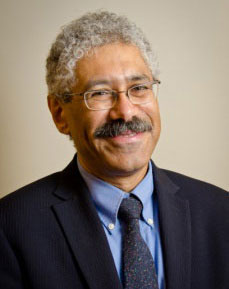
Hani El-Gabalawy
Scientific Director
CIHR Institute of Musculoskeletal Health and Arthritis
Hani.Elgabalawy@umanitoba.ca
Research Interests
Dr. El-Gabalawy’s research interests have focused on the mechanisms initiating and sustaining joint inflammation in rheumatoid arthritis (RA). Dr. El-Gabalawy has published landmark studies on synovial biology, the pathogenesis of early arthritis, and has recently established a unique First Nations cohort to study gene-environment interactions in the pre-clinical phase of arthritis.
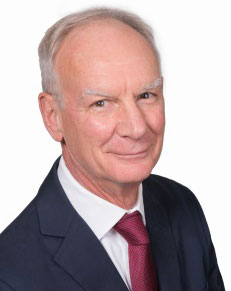
John M. Esdaile
University of British Columbia
Arthritis Research Centre of Canada
jesdaile@arthritisresearch.ca
Research Interests
Dr. John Esdaile is an internationally respected rheumatologist who spearheaded the creation of the Arthritis Research Centre of Canada, at which he is the Scientific Director. He is also a Professor in the Division of Rheumatology at The University of British Columbia Department of Medicine. Dr. Esdaile’s areas of research interest include rheumatoid arthritis, osteoarthritis and systemic lupus erythematosus. His publication of the efficacy of hydroxychloroquine in systemic lupus erythematosus is considered a landmark paper that has altered the treatment of this disease for many patients.
Principal Investigator, Inflammation in Chronic Disease project: PRECISION: Preventing Complications from Inflammatory Skin, Joint and Bowel Conditions.

Darren Fast
Director, Technology Transfer Office
University of Manitoba
darren.fast@umanitoba.ca
Research Interests
Dr. Fast joined the University of Manitoba Technology Transfer Office in October 2012. Previously he was the Senior Intellectual Property Advisor at the Public Health Agency of Canada where he was responsible for ensuring intellectual property protection for new technologies as well as moving the technologies into the private sector. Darren has a Ph.D. in biochemistry from the University of Alberta and a M.Sc. in chemistry from the University of Manitoba.
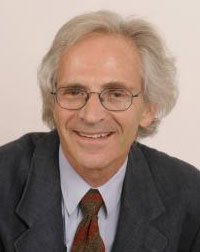
Sir Marc Feldmann
Kennedy Institute of Rheumatology
University of Oxford
marc.feldmann@kennedy.ox.ac.uk
Research Interests
Professor Sir Marc Feldmann, AC FRS trained in medicine at Melbourne University, then completed a PhD in Immunology at the Walter & Eliza Hall Institute with Sir Gus Nossal. His research interests are mechanisms of autoimmunity and the role of cytokines in disease. A major discovery was uncovering the importance of TNF in rheumatoid arthritis and consequently developing anti TNF therapy, together with Sir Ravinder Maini. This has led to his election to the Royal Society, the National Academy of Sciences USA and the Australian Academy of Science, and major prizes: Crafoord Prize of the Royal Swedish Academy of Sciences and Albert Lasker Clinical Research Award, Gairdner award. Current interests are to define new treatments for unmet needs, using a cytokine approach and more cost-effective therapy of RA, and getting closer to a cure. Please see the attached biographical sheet for details of Sir Marc Feldmann’s research and a list of select publications.

Aida Fernandes
Crohn’s and Colitis Foundation of Canada
afernandes@ccfc.ca
Research Interests
Aida Fernandes is the Chief Science and Education Officer for the Crohn’s and Colitis Foundation of Canada (CCFC). As such, she is the overall lead on research, patient services, and advocacy programs for Canada's leading charitable funder of inflammatory bowel disease research.

Shawn Hayley
Carleton University
sp.hayley@gmail.com
Research Interests
Dr. Hayley is the Graduate Chair and a Professor in the Department of Neuroscience at Carleton University. His research is focused upon how interactions between the brain and immune system may influence the development of psychiatric and neurological conditions. Current projects are also exploring how environmental factors and immune insults may cause brain inflammation that contributes to neurodegeneration.
Co-Principal Investigator, Inflammation in Chronic Disease project: Insights into Parkinson’s disease, Crohn’s disease, and leprosy: a common role for LRRK2.
Marie-Josée Hébert

Centre hospitalier de l'Université de Montréal
marie-josee.hebert.chum@ssss.gouv.qc.ca
Research Interests
Dr. Marie-Josée Hébert is a Professor in the Faculty of Medicine of the Université de Montréal, a researcher at the CHUM research centre and a nephrologist-transplant physician at the CHUM. Dr. Hébert is also the Director of the multi-organ transplant program at Université de Montréal and an expert in the fields of programmed cell death and biomarkers of rejection. Dr. Hébert’s work helps to better characterize endothelial and vascular damage mechanisms induced by new immunosuppressive therapies in transplantation and chronic renal failure.
Co-Director, Canadian National Transplantation Research Program project under the Inflammation in Chronic Disease Signature Initiative.
Principal Investigator: Contributions of inflammation and cell death dysregulation to clinical challenges in transplantation: cross-talk between basic, clinical and health-organization research programs.
Peter J. Jones
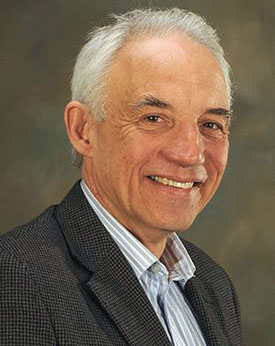
Research Interests
Peter J. Jones, Canada Research Chair in Functional Foods and Nutrition, joined the University of Manitoba in 2005, as Director of the Richardson Centre for Functional Foods and Nutraceuticals. His main appointment is in the Department of Food Science with a cross-appointment in Human Nutritional Sciences. He completed a PhD in Nutritional Biochemistry from the University of Toronto in 1985, and was a Medical Research Council of Canada post-doctoral fellow at the Clinical Nutrition Research Center at the University of Chicago. Currently, Dr. Jones serves as President of the Danone Institute for Nutrition in Canada and Past-President of the Canadian Society for Nutritional Science. He serves as Chairman of the Functional Foods and Nutraceuticals Board of the Vancouver-based Forbes Medi-tech group. His research interests cover cholesterol, fat and energy metabolism. His research group has explored the dietary determinants which control cholesterol biosynthesis absorption and turnover in humans, and how plant sterols act in functional foods as cholesterol-lowering agents.
Harold Just
Abbvie Corporation
Research Interests
AbbVie began as the pharmaceutical leader, Abbott, which was founded in 1888 by Chicago physician, Dr. Wallace Abbott. Since then, Abbott has evolved to become a global healthcare leader, delivering innovative pharmaceutical, nutritional, diagnostic, and medical products to people around the world.
Gil Kaplan

University of Calgary
ggkaplan@ucalgary.ca
Research Interests
Dr. Kaplan is a tenured-tracked Associate Professor in the Cumming School of Medicine at the University of Calgary. A gastroenterologist and epidemiologist, he has devoted his clinical and research career to studying the cause of gastrointestinal diseases such as the inflammatory bowel diseases (IBD), including the environmental determinants (e.g. pollutants) that are associated with gastrointestinal disorders, and improving the delivery of care to patients living with these conditions, through health service and population health research. He is a Canadian Institutes for Health Research (CIHR) New Investigator and an Alberta-Innovates Health-Solutions Population Health Investigator. He is a member of the executive committee in the University of Calgary’s O’Brien Institute for Public Health and the Scientific and Medical Advisory Committee of Crohn’s and Colitis Canada.
Co-Investigator, Inflammation in Chronic Disease projects:
Nod-like receptors: Linking innate immunity and inflammation to chronic disease.
Brain Dysfunction in Chronic Inflammatory Disease: Reciprocal Effects of CNS and Periphery Crosstalk.
A Multidisciplinary Approach to Target Chronic Inflammation of the Gut, Liver and Joint.
Stevie Kenyon
Senior Medical Advisor
Hoffman-La Roche Ltd.
Stevie.kenyon@roche.com
Research Interests
Roche is the world’s largest biotech company with 14 biopharmaceuticals on the market. It is one of the first companies to bring targeted treatments to patients and drive personalized healthcare. Roche is a committed investor in innovation. (Source: Roche)

Marta Kisiel
Research Interests
Marta Kisiel is a first-year medical student at McMaster University with a PhD in cell and systems biology from the University of Toronto. Having been diagnosed with Crohn’s Disease in 2004 and rheumatoid arthritis related to Crohn’s disease in 2013, she has volunteered with the Crohn’s and Colitis Foundation of Canada since 2009. Marta participated in the CIHR video, Inflammation: A Patient’s Perspective developed out of the Inflammation in Chronic Disease Consensus Conference that took place in Toronto, ON in May, 2011.

Paul Kubes
University of Calgary
Calvin, Phoebe and Joan Snyder Institute for Chronic Diseases
pkubes@ucalgary.ca
Research Interests
Dr. Kubes is a professor at the University of Calgary Faculty of Medicine and Founding Director of the Calvin, Phoebe and Joan Snyder Institute of Infection, Immunity and Inflammation at the university. He also holds a Canada Research Chair in Leukocyte Recruitment in Inflammatory Disease. His research investigates the mechanisms leading to white cell recruitment in cardiovascular disorders. He and his team identified that an endogenously produced gas, nitric oxide, functions to reduce leukocyte recruitment.
Principal Investigator, Inflammation in Chronic Disease project: Intravascular Immunity in Chronic Inflammatory Lung Diseases.

Diane Lacaille
University of British Columbia
Arthritis Research Centre of Canada
dlacaille@arthritisresearch.ca
Research Interests
Dr. Lacaille’s research has led to significant advances in preventing Work Disability for employed people with inflammatory arthritis, such as rheumatoid arthritis (RA). She has developed an online a program that helps people stay employed by promoting self-management of problems at work. Dr. Lacaille’s other focus of research is on evaluating the quality of health care services received by British Columbians with RA.
Co-Investigator, PRECISION: Preventing Complications from Inflammatory Skin, Joint and Bowel Conditions.

Jean François Légaré
Dalhousie University
Capital District Health Authority
Jean.legare@cdha.nshealth.ca
Research Interests
Dr. Légaré is the director of research in Dalhousie Medical School’s Division of Cardiac Surgery. As such, he examines clinical data and outcomes and cellular mechanisms of heart failure. He conducts clinical studies as well as basic scientific research, where he is studying post-heart-attack inflammation and its damaging role in congestive heart failure.
Co-Principal Investigator, Inflammation in Chronic Disease project: Restitution Enhancement in Arthritis and Chronic Heart Disease
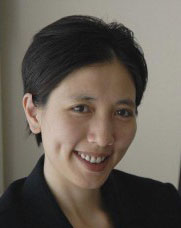
Linda Li
University of British Columbia
Arthritis Research Centre of Canada
lli@arthritisresearch.ca
Research Interests
Dr. Li’s research focuses in two areas: 1) understanding the help-seeking experiences of people with early inflammatory arthritis, and 2) evaluating models of arthritis care. Her methodological skills include clinical epidemiology and mixed-methods design. She also collaborates with digital media experts to develop and evaluate online tools, such as decision aids for promoting shared-decision making and interactive programs for coaching people to be physically active.
Co-Investigator, PRECISION: Preventing Complications from Inflammatory Skin, Joint and Bowel Conditions.

Helen Loughry
Research Interests
Executive-in-Residence / Business Development
Life Sciences Industry, CIHR
Helen.loughrey@cihr-irsc.gc.ca
Dr. Loughrey is a member of the CIHR Partnership and Business Development branch. Her role is to build and sustain strong, mutually beneficial, collaborative research partnerships between CIHR, the researchers it funds, and the Pharmaceutical and Biotechnology industries.

Ruth Ann Marrie
University of Manitoba
rmarrie@exchange.hsc.mb.ca
Research Interests
Dr. Marrie is an associate professor in both the Department of Internal Medicine (Neurology), and the Department of Community Health Sciences at the University of Manitoba, and is the Director of the Multiple Sclerosis Clinic in Winnipeg. Dr. Marrie’s research focuses on various aspects of the epidemiology of MS using a variety of data sources and study designs. In collaboration with the North American Research Committee in Multiple Sclerosis (NARCOMS) Registry, she uses self-report data from registry participants to investigate temporal trends in the ascertainment of MS, and the influence of racial and socioeconomic disparities on disease.
Co-Principal Investigator, Inflammation in Chronic Disease project: Defining the burden and managing the effects of psychiatric comorbidity in chronic immunoinflammatory disease.

Jean S. Marshall
Dalhousie University
(Nova Scotia)
jean.marshall@dal.ca
Research Interests
Dr. Marshall is a Professor and Head of the Department of Microbiology and Immunology at Dalhousie University. She and her research team have shown that activating mast cells with bacterial products can reduce the rate of tumor growth in models of melanoma and lung cancer – not by killing tumor cells directly but by recruiting other cell types and by modifying the body’s response to tumors in a way that prevents tumor growth. Through these studies, they will be able to assess the potential of selective mast-cell activation in cancer therapy and to better understand the mechanisms that allow certain bacterial products to prevent tumor growth.
Co-Principal Investigator, Inflammation in Chronic Disease project: Restitution Enhancement in Arthritis and Chronic Heart Disease.

Daniel Muruve
University of Calgary
dmuruve@ucalgary.ca
Research Interests
Dr. Muruve is a Professor in Medicine at the University of Calgary. The major research focus of his laboratory program is to understand the biology the innate immune system in chronic inflammation and its role in chronic disease. His research group is interested in the biology of the Nod-like receptor (NLR) family of proteins and inflammasomes in the pathogenesis of chronic kidney disease. His group has also established a kidney disease biobank that will provide a direct link to clinical samples as well as a clinicopathologic database to enable biomarker discovery, renal pathology research and molecular disease classification.
Co-Principal Investigator, Inflammation in Chronic Disease project: Nod-like receptors: Linking innate immunity and inflammation to chronic disease.

Peter Nickerson
University of Manitoba
Peter.Nickerson@umanitoba.ca
Research Interests
The Associate Dean of Research at the University of Manitoba, Dr. Nickerson is a member of the Transplant Manitoba - Adult Kidney Program and the Manitoba Centre for Proteomics and Systems Biology. His research, supported by the CIHR and NIH, is focused on improving outcomes in kidney transplantation. In particular, Dr. Nickerson, working with his research collaborators Dr. Rush and Wilkins, is identifying novel protein biomarkers in the urine that can be used to detect rejection in the transplant prior to any long lasting damage having occurred. The ultimate goal is to develop a urine test that patients could use at home to monitor their transplant, much like individuals monitor their blood sugars.

Marc Ouellette
Scientific Director
CIHR Institute of Infection and Immunity
marc.ouellette@crchul.ulaval.ca
Research Interests
Dr. Ouellette's research is focused on antimicrobial resistance where he has made seminal discoveries on resistance mechanism in protozoan parasites. More recently he has implemented proteomic and DNA microarray strategies to study antimicrobial resistance in the parasite Leishmania and the bacteria Streptococcus pneumoniae.

Kamala Patel
University of Calgary
kpatel@ucalgary.ca
Research Interests
Dr. Patel is a Professor in the Department of Physiology and Pharmacology, and Associate Dean of Faculty Development at the University of Calgary. Her area of research focus is on understanding the mechanisms that regulate leukocyte trafficking during inflammation.
Co-investigator, Inflammation in Chronic Disease project: Intravascular Immunity in Chronic Inflammatory Lung Diseases.
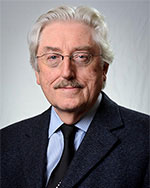
Anthony G. Phillips
Scientific Director
CIHR Institute of Neurosciences, Mental Health and Addiction
aphillips@psych.ubc.ca
Research Interests
Dr. Phillips is a Professor of Psychiatry and a Senior Scientist in the University of British Columbia / Vancouver Coastal Health Brain Research Centre. His research areas of focus include preclinical neuropsychopharmacology and systems neuroscience; and he pioneered research, with H.C. Fibiger, laying the foundation for the role of dopamine in the neural control of motivation and memory, with its clinical implications for understanding biological correlates of addiction. He has long-standing interest in applying knowledge concerning normal brain-behavior function to understanding the neural bases of mental illness and addiction. He also played an important role in the evolution of the biotechnology industry in Canada, having been a Founding Director of QLT.
Dana J. Philpott

University of Toronto
dana.philpott@utoronto.ca
Research Interests
Dr. Philpott is an Associate Professor in the Department of Immunology at the University of Toronto. Her area of research focus is on the role of Nod proteins in bacterial infection.
Co-Principal Investigator, Inflammation in Chronic Disease project: Nod-like receptors: Linking innate immunity and inflammation to chronic disease.
Lynn Pike

Research Interests
Lynn was diagnosed at the age of 20 with asthma, and subsequently managed attacks vs. managed the disease eventually being hospitalized with respiratory arrest. Upon surviving, Lynn sought to become educated about asthma. To thank the doctors and hospital that saved her life, she became involved in the Oakville Hospital, chairing two committees for the hospital foundation. The hospital produced a video featuring Lynn’s near fatal attack and resuscitation. The Ontario Lung Association then approached her to become involved with its activities (Healthy Lungs Campaign, Amazing Pace, Breathe Gala, Apple Classic Golf Tournament, Tulip Day). Lynn has sat on the Ontario Lung Association’s Asthma Action Committee, as the voice of the patient, has been the Christmas Seals Ambassador, and provided the patient perspective at the American Thoracic Society’s International Conference in 2008. Lynn’s story and message has also been featured in the Toronto Star and in an article she wrote for the American Thoracic Society- Public
Stephen Robbins
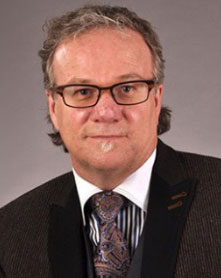
Scientific Director
CIHR Institute of Cancer Research
srobbins@ucalgary.ca
Research Interests
Dr. Robbins’ area of research focus is in understanding the biochemical circuitry that controls cellular proliferation and differentiation and how this circuitry goes awry in cancer.
He has taken a more translational approach including defining new therapies for malaria, has discovered a novel class of anti-inflammatory agents and identified new therapeutic targets for brain tumors.
Amyn P. Sayani

GlaxoSmithKline
Amyn.P.Sayani@gsk.com
Research Interests
Dr. Sayani is the Director of R&D Alliances at GlaxoSmithKline Canada. GlaxoSmithKline (GSK) is a global healthcare group, which is engaged in the creation and discovery, development, manufacture and marketing of pharmaceutical products, including vaccines, over-the-counter (OTC) medicines and health-related consumer products. GSK’s principal pharmaceutical products include medicines in the therapeutic areas, such as respiratory, central nervous system, anti-virals, anti-bacterials, metabolic, vaccines, cardiovascular and urogenital, oncology and emesis.
Philip M. Sherman

Scientific Director
CIHR Institute of Nutrition, Metabolism and Diabetes
sd.inmd@sickkids.ca
Research Interests
Dr. Sherman is Professor of Paediatrics, Microbiology, & Dentistry at the Hospital for Sick Children, University of Toronto, researching epithelial cell signal transduction responses to pathogenic, commensal, and probiotic bacteria.
Mark G. Swain
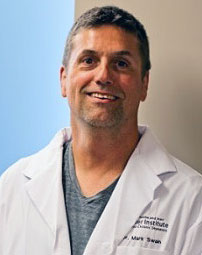
University of Calgary
swain@ucalgary.ca
Research Interests
Dr. Swain is a Professor in the Department of Medicine and Acting Head in the Division of Gastroenterology, Immunology and The Gastrointestinal Research Group. His basic research interests encompass two areas directly related to liver disease. Firstly, he is examining the crosstalk between the liver and brain in experimental liver disease, specifically examining the changes in central neurotransmission which occur in liver disease and which contribute to the generation of liver disease associated symptoms including fatigue, lethargy, anorexia, depression, and the acute phase response.
Secondly, he is studying novel roles played by chemokines and cytokines in the inflammatory response within the liver during experimental T cell mediated hepatitis.
Principal Investigator, Inflammation in Chronic Disease project: Brain Dysfunction in Chronic Inflammatory Disease: Reciprocal Effects of CNS and Periphery Crosstalk.
Cara Tannenbaum

Scientific Director
CIHR Institute of Gender and Health
cara.tannenbaum@umontreal.ca
Research Interests
Dr. Tannenbaum's research focuses on best practices in pharmaceutical care for women and men, better understanding the drug-brain-bladder connection in women, self-management strategies for health improvement, mental health indicators and outcomes, and gender-based analysis. She is the newly-appointed Scientific Director of the CIHR Institute of Gender and Health.
Lori West

University of Alberta
ljwest@ualberta.ca
Research Interests
Dr. Lori West is a pediatric transplant cardiologist and transplant immunologist at the University of Alberta. Dr. West holds a Canada Research Chair in Cardiac Transplantation and is a Fellow of the Canadian Academy of Health Sciences. She has longstanding interests and expertise in translational research that span the breadth of transplant research from basic transplant immunology and neonatal tolerance studies to clinical outcomes and qualitative investigations.
Director, Canadian National Transplant Research Program under the Inflammation in Chronic Disease Signature Initiative.
Principal Investigator: Regulatory T cells from discarded human tissue: transforming garbage to gold through integrated transplantation research across Canada
Kristy Wittmeier

George and Fay Yee Centre for Healthcare Innovation and Physiotherapy
Kwittmeier@exchange.hsc.mb.ca
Research Interests
Kristy is the Director of Knowledge Translation at the George and Fay Yee Centre for Healthcare Innovation and Physiotherapy Innovations & Best Practice Coordinator for the Winnipeg Regional Health Authority. Her current positions, and affiliation with the Manitoba Institute of Child Health, allow her to combine research and practice in an effort to improve patient outcomes.
Janet Yale

The Arthritis Society
jyale@arthritis.ca
Research Interests
Janet Yale joined The Arthritis Society as President and CEO in June 2012. The Arthritis Society is a funding partner of CIHR’s Inflammation in Chronic Disease Signature Initiative. The Society is the only charitable organization in Canada dedicated to funding and promoting arthritis research, advocacy and solutions to improve the quality of life for Canadians affected by arthritis.
CIHR Institute Staff
Serge Desnoyers
Assistant Director
CIHR Institute of Infection and Immunity
serge.desnoyers@crchudequebec.ulaval.ca
Christine Mazur
Communications Project Officer
CIHR Institute of Musculoskeletal Health and Arthritis
Christine.Mazur@umanitoba.ca
Elizabeth Robson
Stakeholder Relations and Secretary
CIHR Institute of Musculoskeletal Health and Arthritis
Elizabeth.Robson@umanitoba.ca
Liz Stirling
Assistant Director
CIHR Institute of Musculoskeletal Health and Arthritis
Liz.Stirling@cihr-irsc.gc.ca
Nicole Szajcz-Keller
Assistant Director
CIHR Institute of Musculoskeletal Health and Arthritis
Nicole.Szajcz-Keller@umanitoba.ca
Michelina Violi
Administrative Coordinator
CIHR Institute of Musculoskeletal Health and Arthritis
Michelina.Violi@umanitoba.ca
- Date modified: